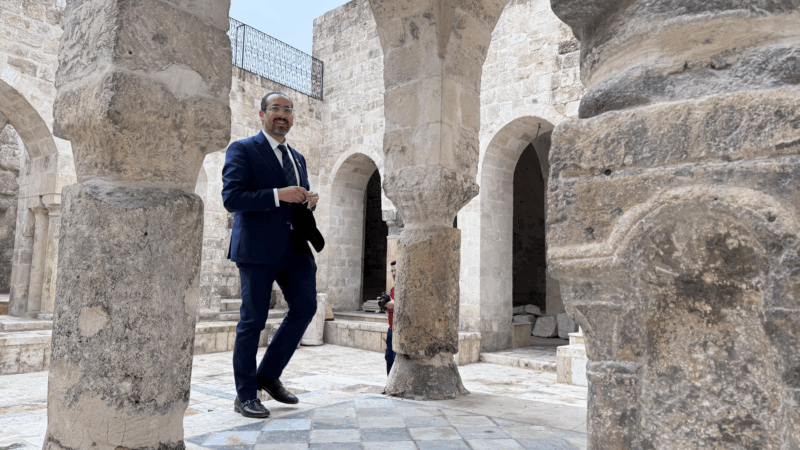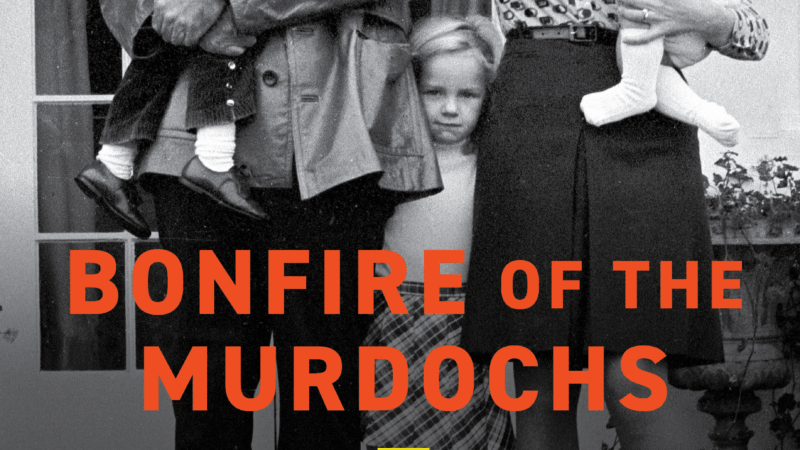Birmingham Poet Gives Voice to Enslaved Women
Dr. James Marion Sims, the man known as the father of modern gynecology, spent years performing surgery on women who experienced complications tied to difficult childbirth. This was in the 19th century at his makeshift hospital in Mt. Meigs, just outside of Montgomery. Sims, who is white, performed this experimental surgery on black enslaved women – without anesthesia. Birmingham author Kwoya Fagin Maples recently published a collection of poems called Mend. Maples, who teaches creative writing at the Alabama School of Fine Arts, says the book is meant to give voice to these forgotten women.
Interview Highlights:
What do you want readers to know about these women:
They were more than what happened to them. And so there are poems in the collection that have to do with nursing children. There are poems in the collection that talk about love interests that they had. And of course there are poems that directly deal with what happened to them and their pain. But I also allow for these women to directly confront the doctor as well and hold him accountable for the first time. For example, in one of the poems, I allowed the woman who experienced the most surgeries, Anarcha, to be the one to confront the doctor.
“What Yields” sonnet VI
First you’d have to consider us women,
realize our hearts beat under the bush,
You’d have to think my heart longed like yours
And that my mind wasn’t mindless, awash
with nothing. I am a hot quaking body—
prime material subject. To you,
I am only worth what can be gleaned.
And you would have to know I meet the pain
how your wife would: Imagine her blushed pink
frame, gap-legged like a birth slick colt, quaking.
But you cannot hold both of us in mind
at once. My ability to bear is
immeasurable. Pain discriminates.
Material subject– I am rabbit.
Describing the women’s bodies as “bruised fruit:”
Fruit just aesthetically are beautiful, but even a fruit that is bruised still has value and it still can be consumed right and taken into our bodies. And so I wanted to portray these women as tender first because fruit are very delicate. I wanted to portray their tenderness. And so that’s why I chose that description.
Why it was important to give a voice to these women:
Because it hadn’t happened before. When I began researching this book, I found so much information about Sims. He became this very well-known doctor. He’s known as the father of gynecology in America. So there’s all this information about him and in his autobiography, he only named three of the women. And so once I read his autobiography, I realized that was the part that was the most unjust; that he didn’t even name all of the women he experimented on. And so I knew at that point I wanted to elevate their voices.
On the removal of Dr. Sims’ statue in Montgomery:
I feel like removing that statue would facilitate healing, particularly for people of color. Whenever we glorify people who abuse members of society, we inhibit healing. Who we choose to elevate as a state is a direct reflection of who we are. So I feel ultimately that the statue should either be amended to reflect the women or completely removed.
The inspiration behind the title “Mend”:
Again, because I am concerned with healing, the title is twofold. Of course it is a direct reflection of what happened to the women in terms of the doctor trying to mend or the doctor trying to heal … that didn’t happen. But by writing this book, I tried to mend what happened to these women by sharing the story from their perspective and by sharing their experiences.
Hear Maples read her poem “I’ve Got Life.”
China bans hidden car door handles, which can trap people after crashes
China has introduced new regulations, starting in 2027, requiring all car doors to open manually from both sides. Electric door handles can malfunction in a crash or battery failure.
Syria, once home to a large Jewish community, takes steps to return property to Jews
A Jewish heritage foundation has set out to help restore private property appropriated after Syrian Jews left the country.
NASA delays the launch of Artemis II lunar mission by at least a month
NASA is targeting March for the launch of four astronauts on a ten-day mission to circle the moon and return safely to Earth, traveling farther than any humans have ventured in deep space.
Harry Styles discos, occasionally, into the recent past
On "Aperture," the lead single from his upcoming album, the pop artist mines a different era of pop music.
The U.K. investigates its ex-ambassador to the U.S. over alleged leaks to Epstein
The U.K. government says newly released files related to Jeffrey Epstein suggest that the former British ambassador to the U.S. may have shared market-sensitive information with Epstein.
How Rupert Murdoch created a media empire — and ‘broke’ his own family
Journalist Gabriel Sherman has covered the Murdoch family for nearly two decades. In his new book, Bonfire of the Murdochs, he chronicles the protracted public battle for control the family business.





